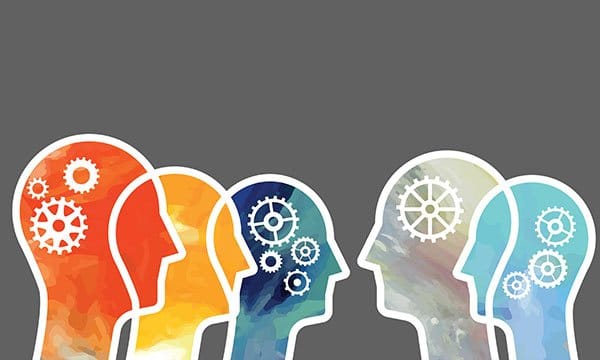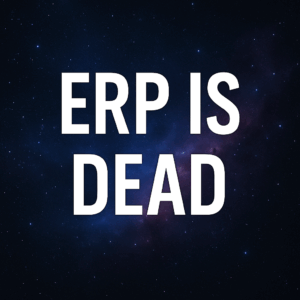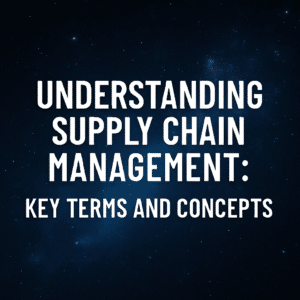The human side of change is the most important part of a digital transformation hands down.
But what exactly is the human factor?
What are those different components?
Organizational change management and the human side of change is by far the most significant piece of any digital transformation puzzle. If you address the human factor well, you’re likely to succeed. If you don’t address it well, you’re highly likely to fail.
Oftentimes organizations don’t understand what organizational change management is or what exactly the human factor and the human component means. Throughout this blog, I will discuss what are those five factors that are most important when you’re considering the human factor of any digital transformation.
Table of Contents
Toggle1. Relationships
Interpersonal relationships, one-on-one relationships, and group-to-group relationships are the foundations of any organizational dynamic. They’re especially critical when you’re going through change.
When you’re about to change your operations and the technologies that you use, understanding and using those relationships to make sure that you’re uncovering any of the organizational pitfalls and landmines associated with a change is very central.
Think about all the times that you’ve been in an office setting or on a call having an informal conversation with a peer or a friendly colleague. Consider the valuable nuggets of information you’ve gleaned from those casual interactions because you have a relationship with that person. Oftentimes you discover solutions or tactics that you wouldn’t have even thought to ask about.
It’s all because you have a relationship with that person and comfortable level of communication. Oftentimes, and to be truthful, these relationships are what’s missing in the digital transformation. We end up focusing too much on being very structured and rigid that we forget about the relationship side.

This is a way to really understand what is actually happening on the front lines. This knowledge can empower you to identify what are the pros vs. cons, strengths vs. weaknesses, and any gaps/opportunities in the company culture that may put our digital transformation at risk.
Ultimately, we want to ask ourselves how can we navigate those realities to ensure that we deploy digital transformations in a manner that will optimize the human-focused strategies?
Transformation leaders need to establish open communication and relationships between different parts of the organizations, locations, departments, workgroups, and individuals. This is one important part of any digital transformation.
2. Communication
Just as relationships are important, so is communications. We want to make sure that we have strong relationships between different parts of the organization. Optimize all lines of communication.
Just as important, if not, more importantly, gathering information and input from the organizations, and getting feedback from the different parts is key. We want to ultimately understand what it’s like on the front lines and what’s really happening with the team we are communicating with.
When we’re going through a digital transformation, it’s easy to sit in a conference room, write on a whiteboard, and talk theoretically about what change might look like. But, until we communicate back and forth via two-way discovery, decision-makers cannot truly comprehend the impact this project has on the organization.
It’s essential to establish things like change agent networks, communication teams, and stakeholders. Treating these initiatives almost as a marketing or advertising campaign is constantly reaching out to these stakeholders and individuals within the organization to ensure you’re keeping those relationships and lines of communication open.

Within the digital transformation strategy, you must have a very solid communication plan and framework to confirm that you’re addressing this principal human dynamic.
3. Emotional Intelligence
In a recent episode of my Transformation Ground Control Podcast, which I publish on a weekly basis, we talked with a guest about this concept of emotional intelligence, specifically in regard to business leaders. To summarize what we mean by emotional intelligence is basically, it is a leader’s ability to recognize the dynamics and the culture of an organization, as well as the individual needs. This awareness is pivotal to understanding any gaps or potential failure points.
Oftentimes when you go through the transformation, it creates a lot of tension, turmoil, and conflict. High IQ people with strong emotional intelligence are able to identify these disruptions and navigate effectively. They recognize tension or conflict in the organizational dynamics that might be undermining any transformation. That’s the first step.
Unfortunately, many leaders don’t even pick up on the fact that there’s a problem, to begin with. Certainly, once there’s a problem identified, emotionally intelligence leaders know how to traverse those challenges, without further escalating the problem.
During high-stress digital transformations, it can be very easy to just sort of forget about or ignore these issues because we’re so focused on new technologies, process improvements, or things that are very tangible. Organizational associations take a whole other layer of emotional intelligence that a lot of people don’t have the skillset for, or they don’t have the time to address.
In the end, it’s fundamental to understand the need for emotional intelligence within project team leaders. The subjective, qualitative, and intuitive aspects of a digital transformation must be appreciated.
4. Vision and Clarity
Another important human dynamic for digital transformation is the concept of vision and clarity of vision. An established vision for the transformation and being able to communicate that vision throughout the organization is key to success.
Oftentimes organizations overly simplify their transformation message and say that we’re going to replace our legacy technology because it’s outdated, broken, and it doesn’t work. That becomes the extent of the vision conversations and messaging.
If that’s true for you, like it is for a lot of organizations, I would challenge you to rethink that strategy and really consider how it’s going to affect your organization and ultimately, how this transformation will enable a more effective professional community.

Let’s paint the picture, for example, if you know that your digital transformation is intended to improve your operational efficiency or to provide a better customer experience, you want to clearly establish these project objectives. Define what exactly the goals are and align with the overall vision of the digital transformation, and ultimately be able to communicate that strategy to the organization.
This is how you might take your organizational vision and clarity one step further than simply saying that we’re going through this transformation because we need to replace technologies.
5. Culture
One of the more nebulous and harder to define aspects of the human dimension of digital transformation is the sole concept of culture. A couple of questions you consider:
- What is your culture as an organization today?
- What do you want that culture to be in the future?
It’s not to suggest that new technology or new processes are suddenly going to change to that culture, but you can be deliberate in terms of moving the needle and evolve your culture.
For example, a lot of times we find that organizations start off as very entrepreneurial, high growth companies, and at some point, they reach varying degrees of maturity and sophistication. In the end, the culture needs to keep up to ensure the adaption of a stainable company community.
Now, culture is a very broad dimension. There’s a lot of different dimensions. Things like compensation, environment, collaboration, and how repeatable your processes are. These are all important things to consider. The culture you create oftentimes will affect a variety of other things.

You want to make sure that you have an overall cultural plan with the understanding that you’re going to address different dimensions of culture, but also understand you’re not going to change it overnight. It’s going to take time to change these things. Just as your culture evolved over years.
That cultural component is something that’s very important to be aware of and cognizant of as you think about your overall transformation.
Resources
These are the five things that you should be aware of as you think about the human factors of your digital transformation. There are a variety of other things and best practices to consider regarding change management and the human side of change. You can find that information in our Guide to Change Management which should help you through your digital transformation. I encourage you to check it out!
I hope you found this information useful and if you have questions regarding the human factors during a digital transformation or anything else along those lines, please don’t hesitate to reach out to me directly. I am happy to be an informal sounding board as you move through your digital transformation journey.






